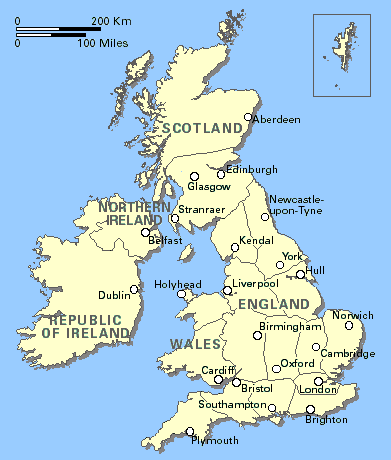Посібник з інтенсивного навчання англійської мови (для студентів внз спеціальності початкова освіта) Частина перша Київ 2013 удк ббк
 Скачать 5.32 Mb. Скачать 5.32 Mb.
|
 Revision 2: We use the future simple, be going to, present continuous or present simple to talk about future actions. Compare the following examples.
(WILL: the future action may or may not happen.)
(BE GOING TO: plans / intentions about the near future: they have already decided to do it, but it hasn’t been arranged yet.)
(PRESENT CONTINUOUS: they have already decided and arranged to do it; an arranged action for the near future.)
(PRESENT SIMPLE: for timetables) Practice –Grammar in use Task 1: Complete short conversations using shall (in questions) or will. 1. ‘The shops are closed tomorrow.’ – ‘I _______ buy a cake today then.’ 2. ‘________ we tell the truth to Bob?’ – ‘That’s a good idea. Maybe he can help.’ 3. ‘It’s too dark in here to read.’ – ‘Is it? I _______ turn on the light.’ 4. ‘Please, come and see us on Sunday.’ – ‘I _______ visit you. That’s a promise.’ 5. ‘______ I wear a sweater or a coat?’ – ‘It’s very cold. Put a coat on.’ Task 2: Dr Brown is the head of the politics department at a small college. a). Look at the calendar which shows his arrangements for the next few months and then make up sentences, as in the example.
E  .g. Dr Brown is having a meeting with the other lecturers in the department on June 17th. .g. Dr Brown is having a meeting with the other lecturers in the department on June 17th.b). Now make up your own calendar for the next few weeks / months, and comment on it. Task 3: Complete the conversations using will or be going to. 1. A: Did you remember to bring my book? B: Oh no, sorry. I promise, I _________ give it to you tomorrow. 2. A: We haven't got any bread. B: OK, I _________ go and get a loaf. 3. A: It's very cold today, isn't it? B: Exactly, I think it _________ snow. 4. A: It seems to me I can be free by the end of the week. B: Oh, excellent, I _________ see you on Friday then. 5. A: I don't want to miss the beginning of the play. B: It's OK. If we leave now, we _________ be there on time. 6. A: Watch out! You _________ burn yourself. B: Oh, I didn't realise the oven was still on. 7. A: Is Sue driving into town? B: Yes, I'm sure she _________ give you a lift if you ask her. 2.3. Conditional sentences: Type 1 Study grammar reference first – type 1: a real situation which refers to the present or future. Revision 1: There are three main types of conditional sentences in the English Language: one is used for real situations, two others for unreal situations. Study the scheme of the first one.  Scheme: If + Present Simple, I will +bare infinitive
 Revision 2: Compare the sentences in the English and Ukrainian languages: If the weather is fine, I will go to the park. / Якщо погода буде гарною, я піду до парку.
 Revision 3: Compare the punctuation: If I am free, I will join you. I will join you if I am free. Help: Prediction – провіщання, передбачення Evident – очевидний Threat – погроза Warning - попередження Intention - намір Offer / suggestion – пропозиція Request - прохання Condition – умова Promise – обіцянка, обіцяти On - the- spot decision – рішення прийняте на місці Clause – другорядний Contain – містити Whether – якщо, чи Practice – Grammar in use Task 1: Read and translate the following examples. 1. If you go to London, you will see Big Ben. 2. In case it rains tomorrow, I’ll stay at home. 3. On condition you don’t hurry, I’ll tell you everything I know about it. 4. Unless you hurry, we won’t be late for the performance. 5. Whether we work hard, we’ll finish the project on time. 6. Unless you help me, I won’t finish my project in time. 7. Whether you are waiting for Tim or not, I will go and meet him. 8. I will make a phone while I am waiting for you. 9. I will tell you something important after you come home. 10. When you come to Tom, he will be extremely glad. Task 2: Translate into English.
Task 3: Complete the following sentences.
2.4. Future Continuous Scheme: will be + V-ing (present participle) Revision: Study grammar references then the situations when the future continuous tense is used.
This time next week, we’ll be cruising round the islands. At two o’clock tomorrow I will be writing an article.
Don’t call Julie. I’ll be seeing her later, so I’ll pass the message on. ‘Shall I inform everybody?’ – ‘No, I’ll do it. I will be seeing them at the meeting.’
‘Will you be using the photocopier for long?’ – ‘No. Why?’ –‘I need to make some photocopies.’ ‘Will you be going out later?’ –‘Yes. Why?’ – ‘Could you get me a sandwich, please?’ Practice –Grammar in use Translate into Ukrainian.
Compare: Let’s wait for Mary to arrive and then we’ll have dinner. Compare: At 10 o’clock yesterday, Susan was in her office. She was working. It’s 10 o’clock now. Sue is in her office. She is working. At 10 o’clock tomorrow, Sue will be in her office. She will be working.
Portrait of a country: Great Britain 3.1. Travel around the globe. a). When we travel we discover different places as well as different cultures. In this lesson we suggest travelling to Great Britain. Study the map / globe of the world first then the location of Great Britain, its geographical features and its neighbouring European countries.
b). Discover Great Britain with us. Surely you will want to know more about the history and traditions of the country, the language of which you are studying. 3.2. Get some information about Great Britain from the text given below. Text A. Great Britain Every country is interesting in its way. What is Britain? Its official name is the United Kingdom of Great Britain and Northern Ireland. It is often abbreviated to ‘UK’ and ‘GB’. It is situated on two large islands called the British Isles. Over five hundred small islands belong to the country. Great Britain itself consists of three parts: England, Wales and Scotland. Great B  ritain is washed by the Atlantic Ocean. It is separated from Europe by the North Sea and the English Channel (Pas de Calais in French). Also it is separated from Ireland by the Irish Sea and North Channel. ritain is washed by the Atlantic Ocean. It is separated from Europe by the North Sea and the English Channel (Pas de Calais in French). Also it is separated from Ireland by the Irish Sea and North Channel. As for the English Channel, for centuries it had been Britain’s defence against invaders. At the same time sailors know it as the most dangerous sea channel in Europe: it has the reputation of being very rough. Still there were a lot of attempts to cross the Channel and some of them ended in invasion of the country. Nowadays a great project has been realized to connect GB and France with a help of tunnel built under the sea. The crossing takes only an hour and a quarter. There are actually three tunnels. One is for passenger trains; the other is for trains that carry different cargo and the last one for maintaining the tunnel. The length of each tunnel is about 45 km. This connection is rather fast though it is expensive. The island is divided into two parts: mountainous and lowland. They and the water around cause changeable climate, rather humid and mild. Winters are not severe as they can be off GB, on the continent, and summers are not warm. Because of the length of British Isles temperatures differ from district to district. The major rivers are the Thames (the deepest) and the Severn (the longest). They seldom freeze in winter. Since there is much rain in the country, typical British houses have high, steep roofs where rain water, and snow can easily melt and flow down. The landscape is rich and often varied even in its 55 counties. When you come to the country, you will enjoy nature which is picturesque everywhere. Great Britain is more an industrial than an agricultural country. Well-developed industries are the following: the heavy (coal, iron and ore), electrical, electronic, chemical, shipbuilding, woolen, trading and others. Stock-farming is greatly developed. The country lives by industry and trade. Britain is the world’s third largest trading nation. Still it doesn’t produce enough food to feed the population, that’s why it depends much on the import of foodstuffs. The biggest cities of GB are London, the capital of the country, Birmingham, Glasgow, Liverpool, Manchester, Edinburgh and Cardiff. Each of them is special and annually attracts thousands of tourists. The UK is a monarchy. It’s a conservative country and it keeps its traditions. The British, for example, preserve the institution of monarchy with pride. Its supreme authority is the Queen and the two Houses of Parliament: the House of Lords and the elected House of Commons. The country is governed by the government in the Queen’s name. Parliament is the oldest in the world. It has existed since 1265. The House of Lords consists of 1000 peers who are not elected by the people. The House of Commons plays the major part in law-making. It consists of 635 elected members. It’s also a tradition. Geographical position of the country produced an insular spirit among its inhabitants. They regard their community as the centre of the world. May be it explains the fact that the British look at foreigners in general with content. Their conservatism has become their national feature. And they tend to be superior, snobbish, unsociable, etc. But indeed there are two nations in Britain: the ordinary people, for example, are friendly and sociable. The British people are prudent and careful about almost everything. Everything concerning their lifestyle is orderly. Their devotion to animals is also a tradition. Animals are protected by law. The British sense for law and order is well known. What do you think about the Britons’ habit to do everything in a certain and traditional way? Help:
3.3. Translate into Ukrainian. a). George Gordon Byron: England! With all thy faults I love thee still! I said at Calais, and have not forgotten it! I like the taxes when they are not too many; I like a sea – coal fire, when not too dear; I like a beef-steak, too, as well as any; Have no objection to a pot of beer; I like the weather when it is not rainy; That is, I like two months of every year. b). Almost every nation has a reputation of some kind. The French are supposed to be amorous; the Germans formal and dull; the Americans boastful, energetic and vulgar. As for the English, they are reputed to be cold, reserved, rather haughty people who do not yell in the street. They are steady, easy-going and fond of sport. c). Use video and authentic sources about Great Britain to feed your curiosity and make a visual portrait of the country.  |

 onversational Topic.
onversational Topic.